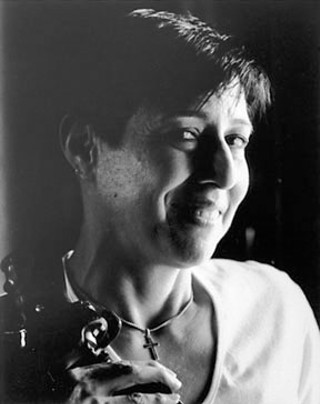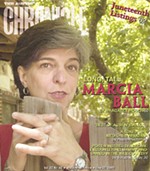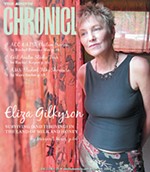Temples and Playgrounds
Previewing the 2007 Texas Book Festival, Nov. 3-4
By Belinda Acosta, Fri., Nov. 2, 2007

Sarah Cortez
Poet and writer Sarah Cortez (How to Undress a Cop) has been teaching writing in a variety of contexts for the past 10 years. A course she taught at the University of Houston is what inspired a collection of work by young Latino writers that's at once fresh and familiar. She discussed how the anthology Windows Into My World: Latino Youth Write Their Lives (Piñata Books/Arte Público Press, $14.95) came about by phone from her home in Houston.
Austin Chronicle: In your preface, you explain that Windows Into My World was inspired by a class you taught called Memoir and Mexican-American Identity at the University of Houston. Are all the pieces in the book from that one class?
Sarah Cortez: No. I taught the class for five or six years. I also taught an urban poetry class. Twenty-two of the 36 contributors have been my students. The rest responded to a call for submissions.
AC: All the pieces are short. Are they excerpts of longer pieces?
SC: No, they're complete as they are. In the class, the pieces were limited to 1,000 to 1,200 words. The goal was to create a meaningful and complete piece within the parameters given.
AC: In your preface, you explain that the purpose of this book, and the class that inspired it, was to show that "college undergraduates ... didn't need to be middle-aged or beyond to make sense out of one's life experience."
SC: So much that's already out there is by middle-aged Latinos writing about their youth – wonderful writers like Pat Mora. But there is little by young people writing about their lives. When I, and some of the contributors, go out and do presentations of the book in middle schools and high schools, the response is ecstatic. The strongest responses come from schools with lots of Latino and Mexican-American students. They are so thrilled to see the details of their own lives mirrored on the page and ask when they can submit to the next book. The Latino students are especially thrilled to see someone who looks like them, who's as brown as them, who may not have had English as their first language, and maybe has an accent, reflecting some part of their lives that they recognize. The response is very powerful.
AC: This might be a stretch here, but do you think a reason for the book's favorable response is because memoir is similar to another form of truth-telling that young people are familiar with: reality TV?
SC: I don't watch TV, so I don't know. What I've heard a lot of my students say is that when they took the class they thought it was exclusively a literature class. When they found out they had to write – and write about their own lives – they almost dropped the course. It's scary to write, especially about your life. A lot of my students told me, "You know, before I thought I had nothing to write about, that I had nothing interesting to say, but I discovered I had worlds to write about." My goal was to let them know that their life experiences are valid but also to help them see that not everything that's true is interesting. Look at blogs. They offer a chance to vomit out what's in your mind. I wanted my students to learn how to craft a complete, whole piece.
AC: Latino cultures have been known for having a strong oral tradition. How much did that legacy come in to play when you were working with your students?
SC: I think them being able to filter out and look at writing strategies on the page was a good counterpoint to the oral. The oral has to have a strong narrative, as does memoir. But in the oral, you tell the story, and the story is the same every time. Memoir has the strong, self-reflective element.
With Valarie Hurtado, Eusebia Ulloa, and Juan Macias
Saturday, Nov. 3, 1pm
Capital Extension Room E1.012








